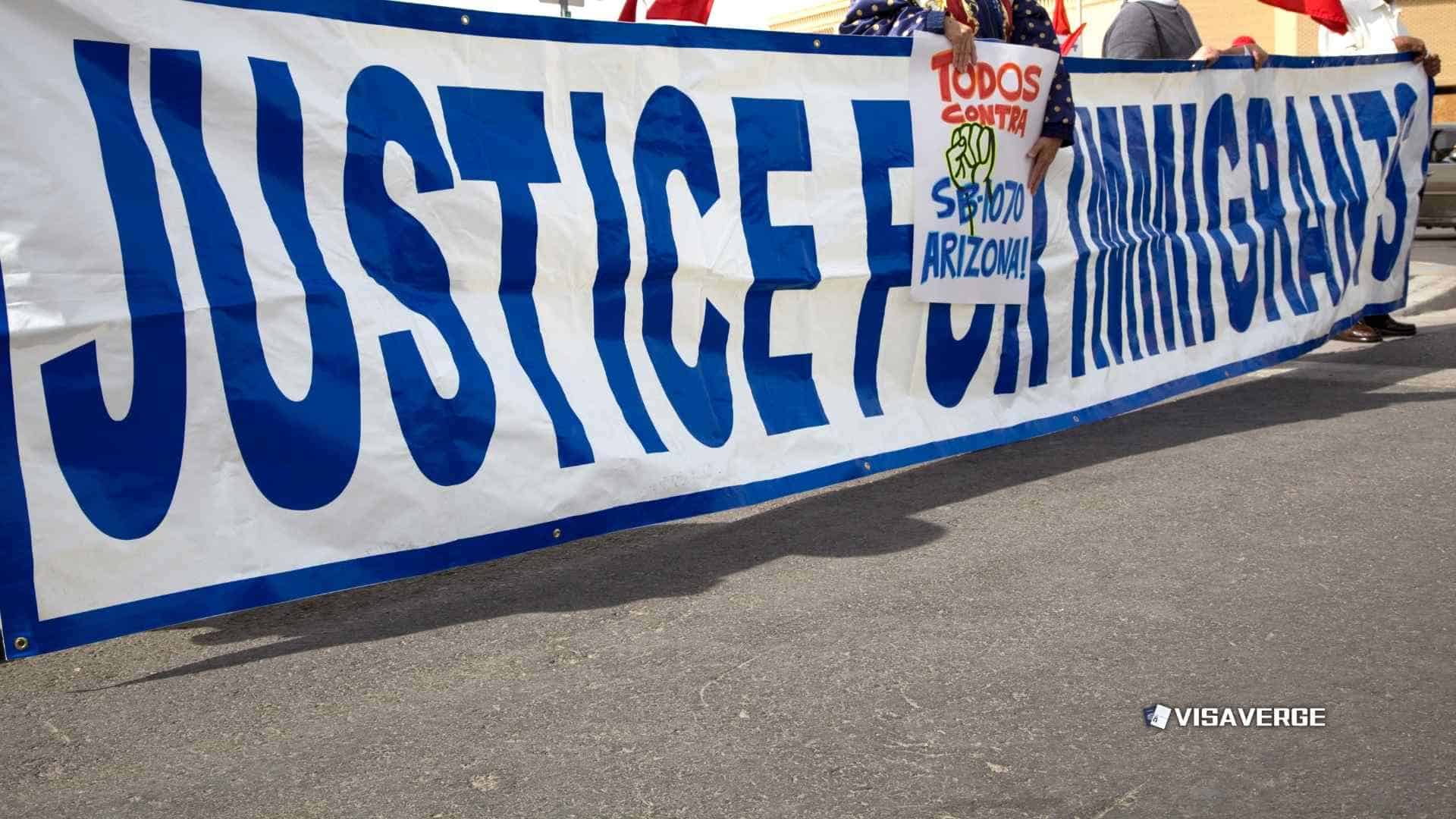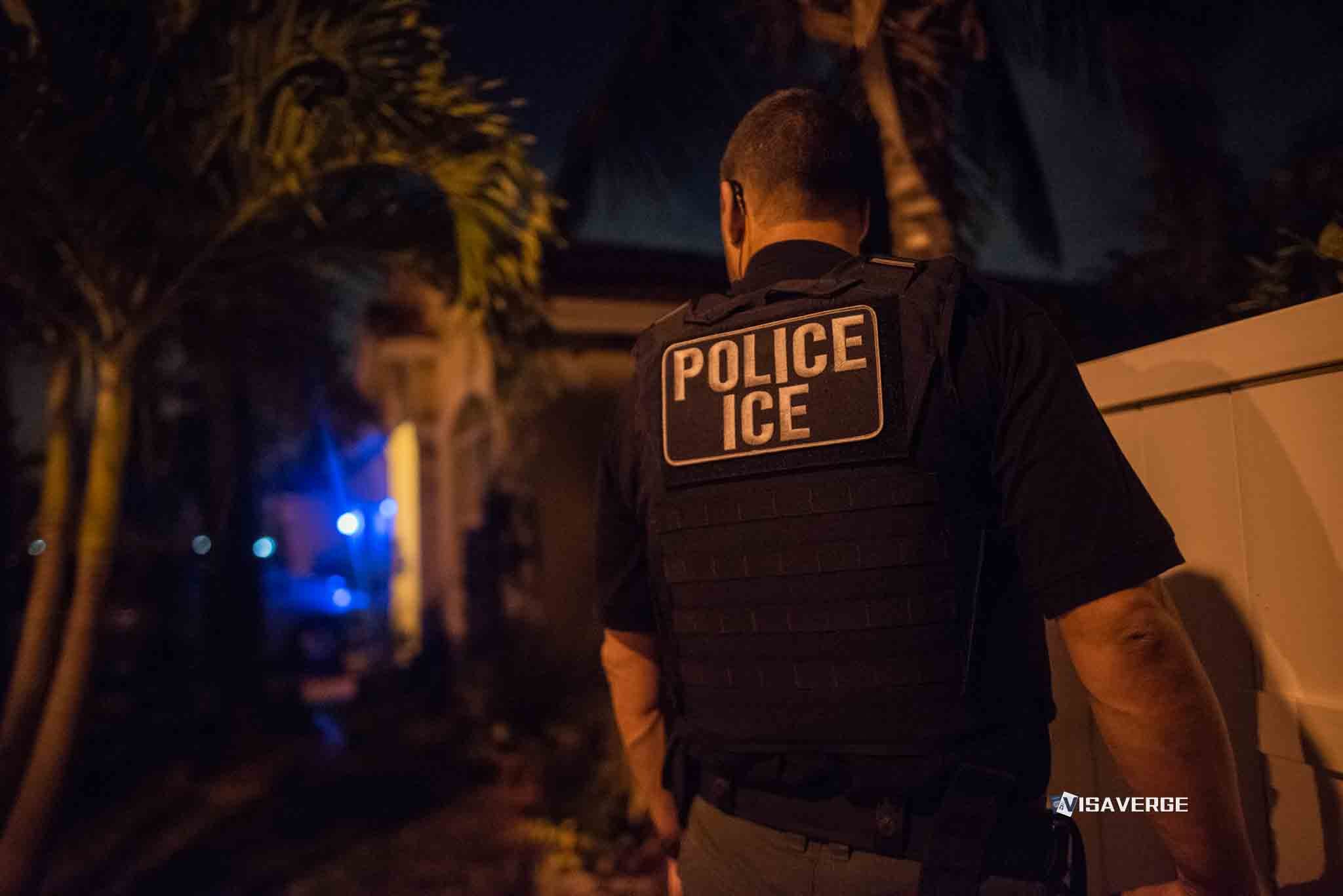Key Takeaways
• On June 10, 2025, over 70 unauthorized workers were detained in Omaha’s largest worksite immigration raid.
• Glenn Valley Foods lost half its workforce; many local businesses closed amid fear and disruption.
• The raid targeted identity fraud and illegal employment under the Take Back America Task Force.
On June 10, 2025, the city of Omaha, Nebraska, became the center of national attention after the largest worksite immigration raid in the state’s recent history. Federal agents descended on Glenn Valley Foods, a major employer in the area, detaining more than 70 individuals suspected of working without legal authorization. The operation, which unfolded under a federal search warrant, sent shockwaves through the local community, shuttered businesses, and left families in turmoil. As Omaha, Nebraska, continues to recover, the raid’s effects are being felt across many levels—by workers, employers, families, and the broader immigrant community.
What Happened: The Raid at Glenn Valley Foods

The raid at Glenn Valley Foods marked the most significant worksite immigration enforcement action in Nebraska since the current presidential administration began. More than 70 people were detained, with over 60 transferred to a Nebraska detention center. The rest were either deported or sent elsewhere for further processing. The operation was part of a broader federal effort to crack down on unauthorized employment and identity fraud.
During the raid, tensions ran high. One individual from Honduras was accused of assaulting federal agents, while protesters outside the facility threw rocks and even jumped on moving Immigration and Customs Enforcement (ICE) vehicles, causing property damage. The immediate aftermath saw the closure of the local library and community college, and several businesses in South Omaha shut their doors for days. The fear and uncertainty spread quickly, especially among the area’s large immigrant population.
Why the Raid Happened: Policy and Enforcement
The Omaha, Nebraska, worksite immigration raid was not an isolated event. It was part of a larger strategy by the current administration to prioritize immigration enforcement and border security. According to ICE Acting Director Todd Lyons, the operation aimed to protect American citizens and businesses from identity fraud and to send a clear message that assaulting federal officers would not be tolerated.
The legal basis for the raid included allegations of fraudulent use of Social Security numbers, assault on federal officers, illegal reentry into the United States 🇺🇸, and damage to federal property. The U.S. Attorney’s Office confirmed that the raid followed an audit of employee records at Glenn Valley Foods, which revealed widespread use of false documents.
This operation was conducted under the Take Back America Task Force, a federal initiative focused on worksite enforcement. The raid also came amid heightened federal enforcement actions elsewhere, including the deployment of thousands of National Guard troops and Marines to respond to protests over immigration policies in Los Angeles.
The Numbers: Who Was Affected?
The scale of the Omaha, Nebraska, worksite immigration raid was significant:
- Date of Raid: June 10, 2025
- Location: Glenn Valley Foods, Omaha, Nebraska
- Individuals Detained: Over 70
- Transferred to Detention: More than 60
- Deported or Processed Elsewhere: The remainder
- Community Demographics: Nearly a quarter of residents in the raid area are foreign-born (2020 census)
- Business Impact: Glenn Valley Foods lost half its workforce; several local businesses closed for days
These numbers only tell part of the story. The human impact—families separated, workers detained, and businesses left scrambling—has been profound.
The Immediate Impact: Community Disruption and Fear
The raid’s effects rippled through Omaha, Nebraska, almost instantly. The local library and community college closed early, and many businesses in South Omaha shut down for several days. For a community where nearly one in four residents is foreign-born, the sense of fear and uncertainty was overwhelming.
Douglas County Board of Commissioners Chairman Roger Garcia described the “chilling effect” the raid had on the community. Parents kept children home from school, and many people avoided public places out of fear of further enforcement actions. The closure of local institutions highlighted just how deeply the raid disrupted daily life.
Business owners, too, felt the impact. Glenn Valley Foods lost half its workforce overnight, making it difficult to continue operations. Other local businesses, many of which rely on immigrant workers and customers, saw a sharp drop in activity.
The Legal Process: What Happens to Detainees?
After the raid, detained individuals were screened for prior criminal history, outstanding warrants, and immigration status. Those with previous deportation orders or criminal records faced immediate removal or prosecution. Others were transferred to detention centers or processed elsewhere.
Legal organizations, such as the Center for Immigrant and Refugee Advancement (CIRA), quickly mobilized to provide legal counsel and help reconnect separated families. CIRA’s legal teams worked to ensure that detainees understood their rights and had access to representation, especially as some faced federal charges for fraud, assault, or illegal reentry.
The U.S. Attorney’s Office has stated that the criminal investigation is ongoing, and decisions about specific charges are still pending. The process can be lengthy and confusing, especially for families who may not speak English or understand the legal system.
For more information on immigration enforcement and detainee rights, readers can visit the official U.S. Immigration and Customs Enforcement (ICE) website.
Employer Challenges: Compliance and Uncertainty
Employers like Glenn Valley Foods face their own set of challenges after a worksite immigration raid. Owner Rohwer expressed frustration over the lack of clear guidance from the government on how to ensure all workers are legally authorized. He called for better communication and support, noting that even with audits and paperwork, it can be difficult to verify every employee’s documents.
The raid has put all local employers on notice: hiring unauthorized workers carries serious risks, including federal audits, fines, and even criminal charges. Many business owners are now reviewing their hiring practices and seeking legal advice to avoid similar problems in the future.
According to analysis by VisaVerge.com, employers across the country are likely to see increased scrutiny and more frequent audits as part of the administration’s focus on worksite enforcement.
The Role of Advocacy Groups: Legal and Social Support
Advocacy organizations have played a critical role in the aftermath of the Omaha, Nebraska, worksite immigration raid. Groups like CIRA have provided legal counsel, helped reconnect separated families, and offered social support to those affected.
These organizations stress the importance of trauma-informed care, recognizing that raids can have lasting emotional and psychological effects on individuals and families. They also advocate for due process and fair treatment for all detainees, regardless of their immigration status.
Legal experts point out that immigration law is complex, and many detainees may have valid claims for relief or may be eligible for certain forms of protection. Access to legal representation can make a significant difference in the outcome of their cases.
Community Recovery: Steps Toward Healing
As the investigation continues and legal proceedings move forward, the Omaha, Nebraska, community is slowly beginning to recover. Local businesses and institutions are reopening, and advocacy groups are working to provide ongoing support.
Community leaders are calling for long-term recovery efforts, including mental health services, economic assistance for affected families, and programs to rebuild trust between immigrants and local authorities. The raid has highlighted the need for clear communication and cooperation between federal agencies, employers, and community organizations.
Policy Implications: What Comes Next?
The Omaha, Nebraska, worksite immigration raid is likely to have lasting effects on immigration policy and enforcement practices. Key implications include:
- Stricter Enforcement: Employers can expect more frequent audits and tougher penalties for hiring unauthorized workers.
- Focus on Identity Fraud: Federal authorities are prioritizing cases involving the misuse of Social Security numbers and other documents.
- Community Impact: Raids can cause widespread fear and economic disruption, especially in areas with large immigrant populations.
- Calls for Reform: Employers and advocacy groups are urging the government to provide clearer guidance on hiring practices and to consider the human costs of enforcement actions.
The debate over immigration enforcement is likely to continue, with policymakers weighing the need for border security against the economic and social contributions of immigrant workers.
Multiple Perspectives: Voices from the Community
The Omaha, Nebraska, worksite immigration raid has drawn strong reactions from many different groups:
- Federal Government: Officials emphasize the need to enforce immigration laws, protect American workers, and prevent identity fraud.
- Employers: Business owners want clear rules and support to ensure they are following the law.
- Immigrant Community: Many feel targeted and fearful, relying on advocacy groups for support and information.
- Legal and Advocacy Organizations: These groups provide critical services, advocate for humane treatment, and work to ensure due process for all.
Each perspective highlights the complexity of immigration enforcement and the need for balanced, fair policies.
Frequently Asked Questions
What happens to people who are detained in a worksite immigration raid?
They are screened for criminal history and immigration status. Some may face federal charges, while others are transferred to detention centers, deported, or processed elsewhere.
How are families affected?
Families can be separated, with some members detained or deported. Advocacy groups work to reconnect families and provide support.
What are the risks for employers?
Employers who hire unauthorized workers face audits, fines, and possible criminal charges. They are encouraged to review hiring practices and seek legal guidance.
What support is available for the community?
Legal and advocacy organizations offer counsel, family reunification, and social services to those affected by raids.
Step-by-Step: How a Worksite Immigration Raid Unfolds
- Audit and Investigation: Federal authorities review employee records to identify unauthorized workers.
- Warrant Execution: ICE and federal partners execute a search warrant at the worksite.
- Detention and Processing: Individuals are detained, screened, and either transferred to detention centers, deported, or processed elsewhere.
- Legal Support: Advocacy groups provide legal counsel and help reconnect families.
- Community Response: Local institutions and businesses may close temporarily due to fear or disruption.
Official Resources and Contacts
For those seeking more information or assistance:
- U.S. Immigration and Customs Enforcement (ICE): ice.gov
- U.S. Attorney’s Office, District of Nebraska: justice.gov/usao-ne
- Center for Immigrant and Refugee Advancement (CIRA): cira-ne.org
These organizations can provide updates, legal resources, and support for affected individuals and families.
Looking Ahead: The Future for Omaha, Nebraska
The aftermath of the Omaha, Nebraska, worksite immigration raid is still unfolding. Legal proceedings are ongoing, and many families remain separated or uncertain about their future. Advocacy groups continue to push for fair treatment and support, while employers and community leaders call for clearer rules and better communication from the government.
The raid has sparked important conversations about the balance between enforcement and compassion, the role of immigrant workers in the local economy, and the need for policies that protect both national security and human dignity.
As Omaha, Nebraska, moves forward, the lessons learned from this raid will shape how the community, employers, and policymakers approach immigration enforcement in the years to come.
Key Takeaways
- The Omaha, Nebraska, worksite immigration raid was the largest in the state’s recent history, detaining over 70 individuals and disrupting the local community.
- Employers face increased scrutiny and risk of enforcement actions, while advocacy groups provide critical legal and social support.
- The raid has caused fear, economic disruption, and lasting effects on families and businesses.
- Policy debates continue over the best way to balance enforcement with support for immigrant communities.
For more details on worksite enforcement and your rights, visit the U.S. Immigration and Customs Enforcement (ICE) official website.
Learn Today
Worksite Immigration Raid → A federal enforcement operation targeting unauthorized employment at a workplace.
ICE (Immigration and Customs Enforcement) → U.S. agency enforcing immigration laws and conducting worksite investigations.
Identity Fraud → Illegal use of another person’s identity, often to obtain employment or benefits.
Detention Center → Facility where immigration detainees are held pending legal proceedings or deportation.
Take Back America Task Force → Federal initiative focused on enforcing immigration laws at workplaces nationwide.
This Article in a Nutshell
The June 10, 2025, raid at Omaha’s Glenn Valley Foods detained over 70 unauthorized workers, causing closures and community fear while spotlighting federal efforts against identity fraud and illegal employment.
— By VisaVerge.com








